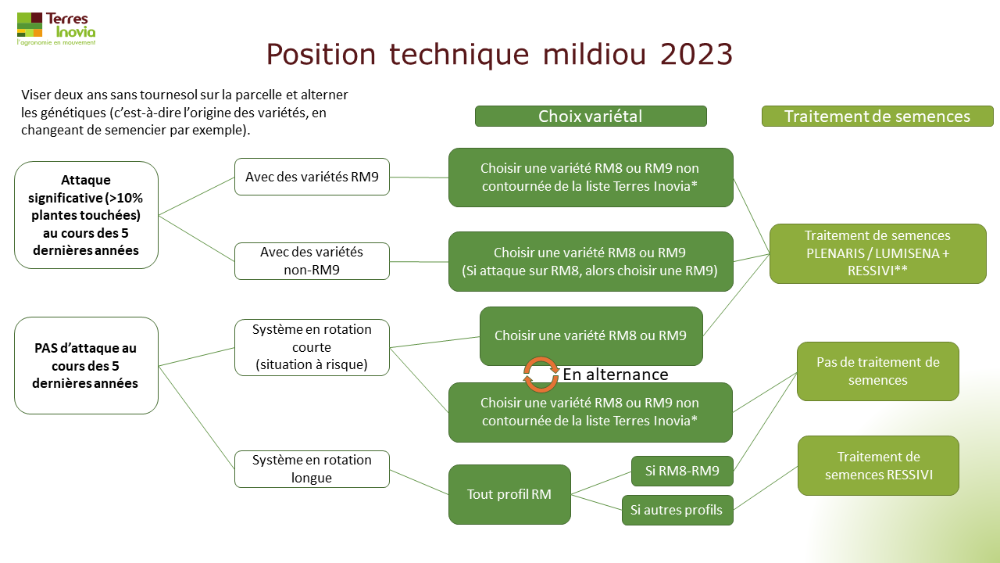Discover the joint note from Terres Inovia, GEVES, INRAE, "Sunflower blight"
Discover the joint note from Terres Inovia, GEVES, INRAE, "Sunflower blight"
This note presents the latest results of the national monitoring network dedicated to downy mildew of sunflower. It also reminds the regulatory context and the recommendations for sustainable management of downy mildew risk in the field.
2022 assessment of the national monitoring network
The downy mildew pressure of the 2022 campaign was in line with the average of the last 20 years, but was characterised by a high number of serious attacks. The first seedlings, subject to water abatement at the time of emergence, were particularly affected. Thus, 14% of the 947 plots observed by the actors of the interprofessional monitoring system (Terres Inovia, actors of the BSV Poitou-Charentes, seed companies) showed symptoms (against 9% last year), with an average attack rate of 13% (against 5% in 2021). Cases of heavy attack have never been so numerous for 20 years: among the 136 affected plots, 33% (45 plots) showed more than 10% of dwarfed plants, and 17% (23 plots) more than 30% of dwarfed plants.
Integrated protection more important than ever in 2023
The diagram below explains how best to combine the means of control to manage the situation according to the history of the plots. The recommendations for alternating the choice of varieties and seed treatments are intended to preserve the effectiveness of these solutions. In the absence of knowledge of the resistance genes in the varieties, the only cases justifying a deadlock on seed treatment concern varieties equipped with at least two genes effective against the races of mildew to which they will be exposed, in particular for varieties resistant to the isolate of race 714 bypassing Pl8 grown in a bypass situation; only the seed company is in a position to commit itself to this justification If there is only one effective Pl gene, which is likely to be bypassed, we recommend a combined seed treatment.

*resistant to race 714 isolate bypassing Pl8. If a variety is not in the Terres Inovia list, only the seed company can commit itself on the justification of the absence of seed treatment. The list of RM8 or RM9 varieties not bypassed is available here. The list of RM9 varieties whose genetic resistance has been bypassed since 2018 has been drawn up by Terres Inovia in collaboration with the storage organisations; it is available here.
**Only the seed company is able to commit itself on the justification of the absence of seed treatment (polygenic resistance to race isolate 714 bypassing Pl8).
Contact : Emmanuelle MESTRIES (e.mestries@terresinovia.fr)